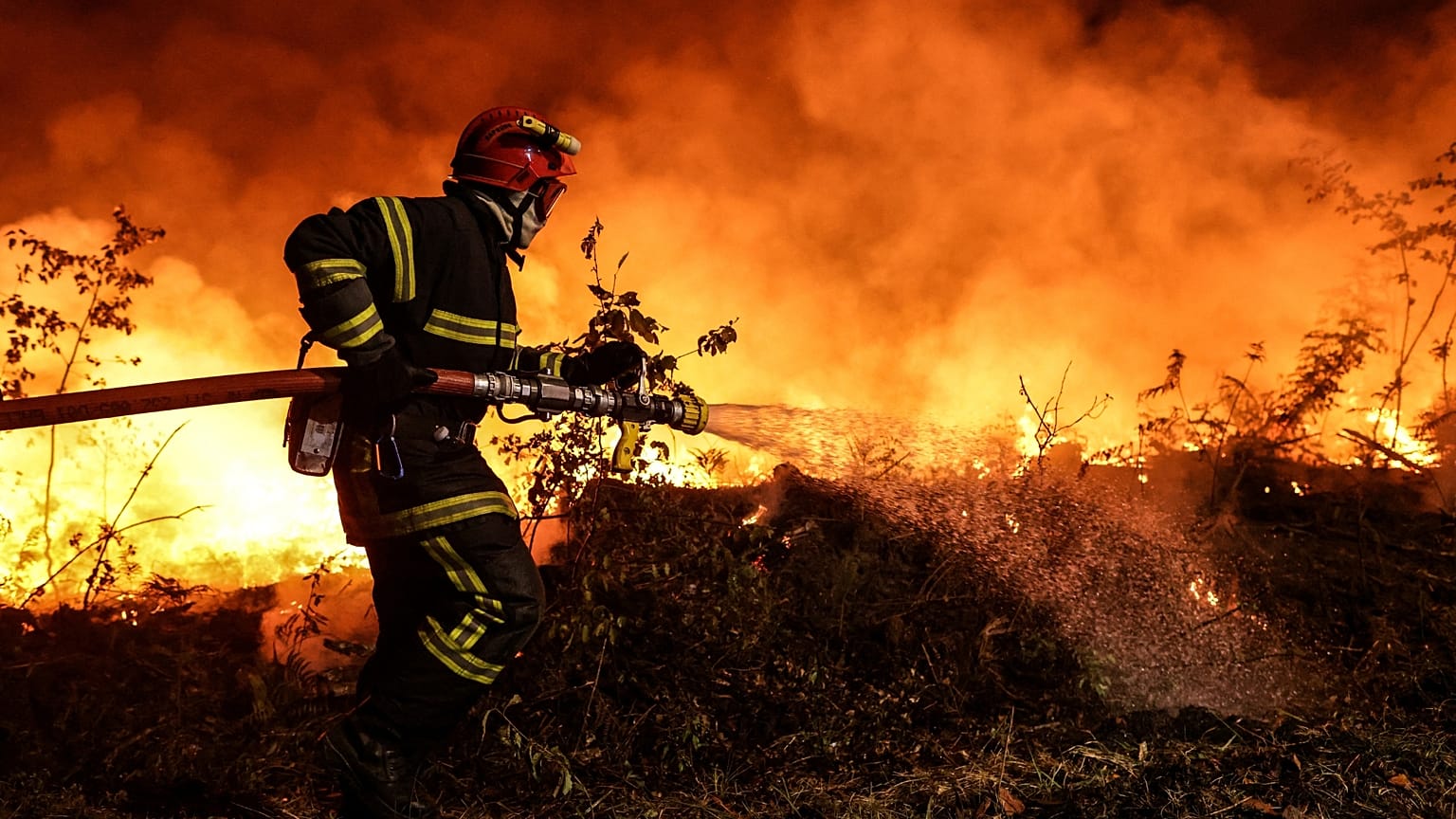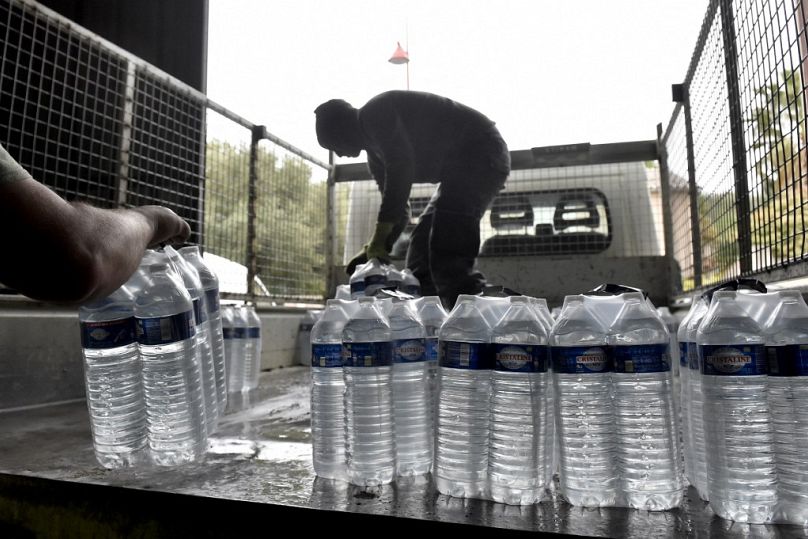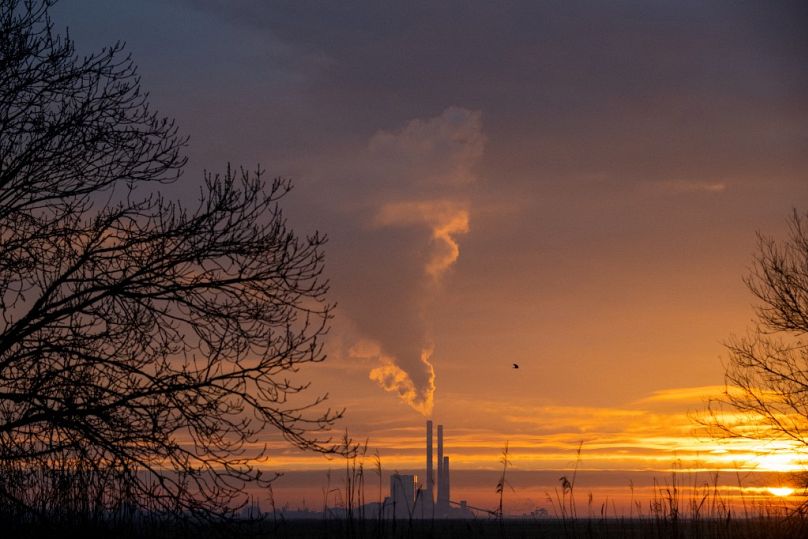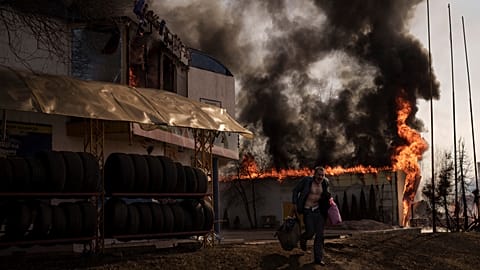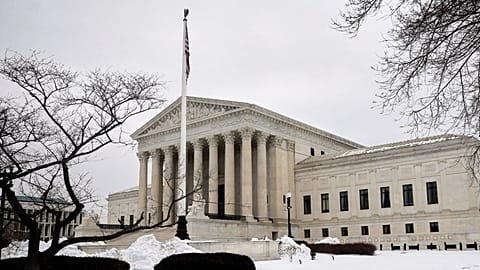While greenhouse gas emissions have declined, experts say efforts are still ‘insufficient’ to reach 2030 targets.
France’s action on greenhouse gas emissions is “insufficient” and the country isn’t “ready to face up” to the consequences of climate change, the country’s High Council for Climate (HCC) has warned.
 ADVERTISEMENT
ADVERTISEMENT
 ADVERTISEMENT
ADVERTISEMENT
The 200-page report released on Wednesday (28 June) reveals that the country was overwhelmed by extreme climate-related events in 2022. These events required emergency measures on an “exceptional scale” - but extreme years of this kind are becoming increasingly common, it says.
The report’s authors say that while a framework for action on climate change is being developed, it hasn’t so far included economic policy capable of triggering the acceleration needed to reach climate targets.
“The decline in greenhouse gas emissions in France continues in 2022, but at a rate that remains insufficient to achieve the 2030 objectives,” the HCC says.
The consequences of climate change are overwhelming France
Europe is the fastest-warming continent in the world, a recent report by the World Meteorological Organization and the European Union's Copernicus Climate Change Service warned.
Temperatures in France last year were 2.9 degrees Celsius above the 1991-2020 average.
As well as seeing the hottest year on record, rainfall was also 25 per cent lower compared to the 1991-2020 average.
This led to reduced hydroelectric power production, a drop in crop yields, effects on biodiversity and excess heat-related mortality.
The exceptionally hot and dry conditions resulted in 2,816 excess deaths being recorded by the health system in 2022. Extreme weather also created tensions over drinking water supplies in 2,000 municipalities with 8,000 others requesting recognition of “natural disasters” due to the drought.
Major wildfires burned 72,000 hectares of land, forcing France’s firefighting services to call in reinforcements from abroad. Carbon sinks risk being burnt, reducing their ability to counteract emissions.
Last year’s extreme conditions had “serious impacts” on people, the economy, infrastructure and ecosystems, “exceeding the current capacity for prevention and crisis management”, the institute's experts conclude.
Greenhouse gas emissions fell by 2.7 per cent in 2022 but the HCC says this rate is “insufficient to achieve the (2030) targets”.
It also pointed out that mild winter conditions had contributed to the reduction.
French government must ‘recognise the urgency’ of the situation
The HCC called on the French government to “recognise the urgency” of the situation, accelerate its “insufficient” action to reduce greenhouse gasses, and update its “reactive” climate adaptation plans.
Despite positive steps forward with the EU’s ‘Fit for 55’ package, experts say the current pace of change is not compatible with achieving 2030 targets in seven years’ time.
“Rapid and in-depth corrective action is needed to achieve the expected pace of change, the necessary structural changes,” the HCC said.
It is calling for “far-reaching economic policy” that would see public and private funding of €30 billion a year between now and 2030 to decarbonise the economy.
France must “double the pace” at which it is reducing greenhouse gas emissions, Minister for Ecological Transition Christophe Béchu told France Info radio on Thursday.
He said that the goal was to reduce emissions by 140 million tonnes by 2030. A detailed plan on how this will work will be presented to lawmakers on 5 July.














